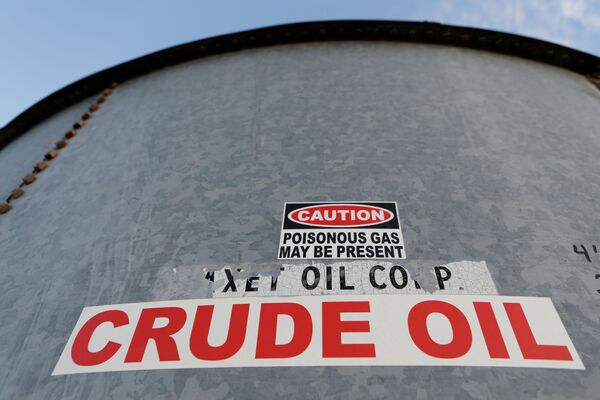Russia and Saudi Arabia are "very, very close" to reaching an agreement aimed at stabilizing the oil market via cuts in output, Russian Direct Investment Fund CEO Kirill Dmitriev has said.
"I think the whole market understands that this deal is important and it will bring lots of stability, so much important stability to the market, and we are very close," he said, speaking to CNBC on Thursday.
A source in one of the delegations taking part in Thursday's OPEC+ meeting confirmed to Sputnik that most OPEC+ nations have agreed on quotas as part of joint plans to cut production. "So far, everything is going very well. Most countries have given their initial consent to the allocation of quotas proposed by the OPEC+ Monitoring Committee. At the moment, if there are no unforeseen disagreements, the probability of signing a final agreement is high," the source said.
Two Distinct Proposals Reported
According to Iranian oil minister Bijan Namdar Zangeneh, there are two proposals on the reduction in output -one calling for a drop of 10 million barrels per day (bpd) and the other 11 million bpd.
Earlier in the day, Russian Energy Minister Alexander Novak said Moscow would consider it appropriate if all major producers were to join the OPEC+ effort to try to stabilize the global oil markets, since doing so would be in the interests of producers and consumers alike.
"Immediate and timely measures are needed, and we need to join forces with all oil-producing countries to alter the situation associated with the significant overproduction of oil in the world," the minister said, speaking at Thursday's meeting.
The minister also welcomed the participation of representatives from Canada, Norway, Argentina, Trinidad and Tobago, Egypt, Colombia, Indonesia, Chad, Ecuador, and other non-OPEC+ members in Thursday's videocall, and said Russia would consider it appropriate to include them in any deal on output cuts.
"We consider it appropriate to increase the number of countries which can take part in a joint effort to stabilize the situation in the world. And we again welcome here today the participation of our colleagues who have not previously participated in the OPEC+ agreement," Novak said.
Russia's energy ministry estimates that supply exceeds demand by 10-15 million barrels per day, and that these figures may grow given the continued economic downturn in the wake of the coronavirus pandemic.
"We are alarmed by the growth of commercial oil reserves and the possibility of completely filling up oil storage facilities. This may lead to serious consequences for the oil industry and the world economy as a whole," Novak said.

Crude Surges Amid Reports of Possible Deal
Oil prices jumped Thursday ahead of the OPEC+ videocall, with Brent and WTI jumping 8.5-10 percent. As of this writing, Brent futures have climbed to $33.23, with WTI sitting at $25.90 and the OPEC basket at $22.67.
Ahead of the call, sources told Reuters that participants were considering cutting output by as much as 20 million barrels daily. Other sources suggested that major producers Russia and Saudi Arabia had managed to overcome their differences and agreed to a deal, whose details have yet to be worked out. Two OPEC+ sources speaking to Reuters indicated later in the day that producers are seeking a deal which may last 'at least 2 years.'
Washington has so far refused to take part in the OPEC+ production cuts, while the Wall Street Journal reported Wednesday that President Trump is considering tariffs to try to to "force" Russia and Saudi Arabia to cut output, and even mulling sanctions against the Russian energy sector.
Oil prices collapsed to their lowest levels since the late 1990s last month after OPEC+ failed to reach an agreement on production cuts amid the ongoing COVID-19 pandemic. The drop in prices has already led to the bankruptcy of at least one major US shale producer, while Russia and Saudi Arabia have been left dipping into their sovereign wealth funds to ride out the crisis.



